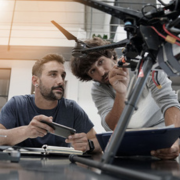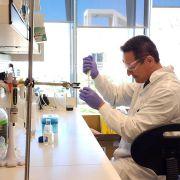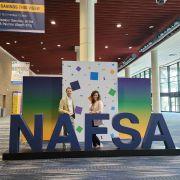The Lowy International School Supports 25 New Joint International Projects
Collaboration in areas ranging from climate change to videography
Following calls for applications for joint projects, The Lowy International School at Tel Aviv University (TAU) recently announced it will be supporting 25 new initiatives promoting joint research, academic exchange and other forms of collaboration with partner institutions.
Supporting Joint Projects
The awarded projects came from a spring call for applications that resulted in 27 proposals submitted, as well as a fall call that saw 32 project submissions. The call this spring included partner institutions Pohang University of Science and Technology (POSTECH), New York University, IIT Madras, Yonsei University and University of Potsdam, while the call this fall included the University of Manchester, Nottingham Trent University, Emory University and Ludwig Maximilian University of Munich (LMU).
Michal Linder Zarankin, The Lowy International School’s project coordinator, oversaw the joint calls:
"Joint collaboration initiatives and projects are always important for TAU, but during these difficult times, our support from our partners in promoting knowledge exchange and advancing joint research means so much more to us."
The calls, which happen twice yearly, span disciplines and can support a variety of approaches, including: joint workshops and conferences, virtual collaborations, establishing collaborative research centers, conducting joint research projects, and providing opportunities for faculty and postdoctoral exchanges as well as visiting professorships.
About the Awarded Projects
The projects funded this round ranged from conducting research related to artificial intelligence or quantum physics to climate change, videography or social research related to hereditary cancer.
For instance, the project on climate change will investigate the relationship between air pollution, lightning, increasing temperatures and climate change and will be broken down into two phases: the first phase will gather data while the second phase will apply machine learning to the dataset to help us better understand and predict extreme weather and specifically the increase in lightning flashes many parts of the world are seeing.
The project on social research related to hereditary cancer will explore how family members perceive hereditary cancer risks and other members’ decisions whether to be tested. One of the main objectives is to determine strategies for more effectively encouraging those at increased risk for hereditary cancers to get tested.
"All of the joint project proposals we received really had a lot of value and we are always so pleased to be able to financially support projects that are helping to make the world a better place and that are advancing knowledge globally."—Linder Zarankin.
Learn More
Interested in establishing a joint call with TAU in the future?
Learn more about our bi-annual call for joint projects, as well as our overall commitment to our partners.





